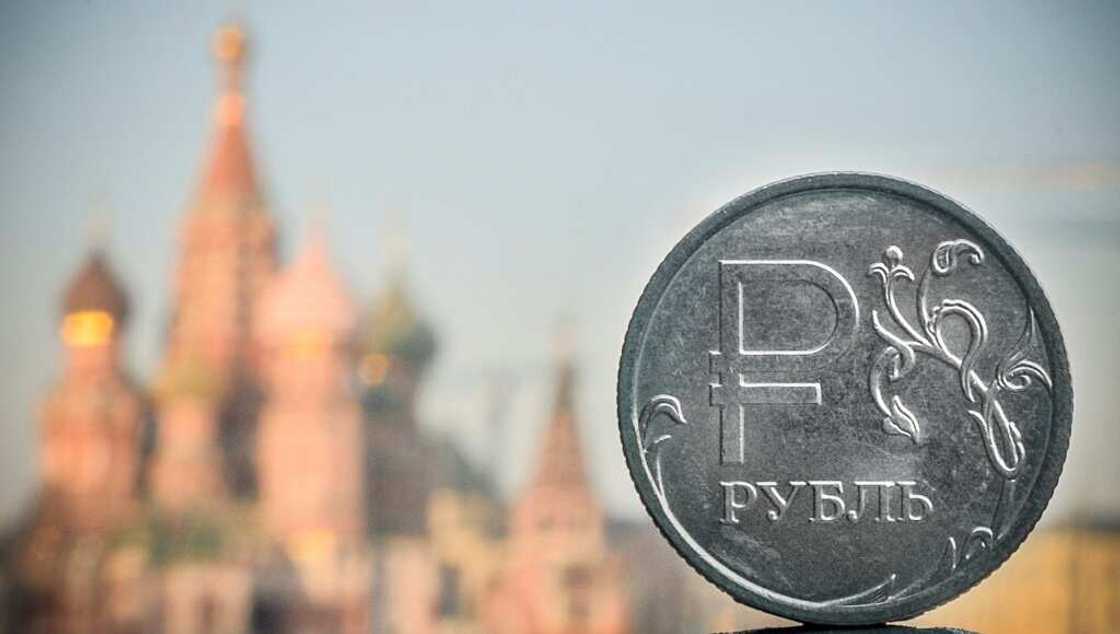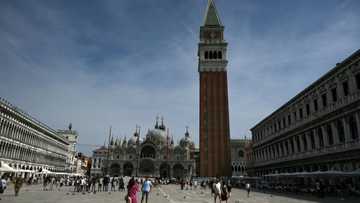Russia to step up support for sagging ruble

Source: AFP
PAY ATTENTION: Click “See First” under the “Following” tab to see Legit.ng News on your Facebook News Feed!
Russia's central bank announced Wednesday it plans to sharply step up support for the ruble, which has weakened considerably after 18 months of Western sanctions following Moscow's military intervention in Ukraine.
The Bank of Russia said that between September 14 and 22 it would sell each day 21.4 billion rubles ($218.5 million) of foreign currency on the market, about 10 times the current volume it is selling on a daily basis.
The central bank tied the move to an upcoming payment of foreign currency bonds issued by the government, known as eurobonds.
"Holders of eurobonds will be paid by the Finance Ministry in rubles in accordance with the established procedure, and therefore a portion of these bondholders may create additional demand for foreign currency," the Bank of Russia said.
The Russian government instituted the payment of these bonds in rubles instead of the foreign currency they are formally denominated in following the imposition of Western sanctions.
The additional volume by the central bank "will help respond to possible additional demand for foreign currency and reduce volatility on the market during this period."
PAY ATTENTION: Share your outstanding story with our editors! Please reach us through info@corp.legit.ng!
While the value of the ruble recovered after a fall after the start of Russia's military campaign in Ukraine thanks to measures taken by the authorities, it has been sliding for the past year.
It fell precipitously at the start of August, breaking the 100 ruble to the dollar level for the first time since in the immediate wake of the start of the military campaign.
To stabilise the ruble and contain rising inflation the Bank of Russia hiked its key interest rate from 8.5 to 12 percent.
That helped strengthen the ruble to under 94 to the dollar, but it has slowly eroded to 98 to the dollar currently.
A dispute has broken out in recent weeks between the government and the Bank of Russia, whose governor Elvira Nabiullina is against further government intervention in the economy to avoid weakening it further.
Meanwhile, Finance Minister Anton Siluanov is for greater control on movements of capital.
Source: AFP



